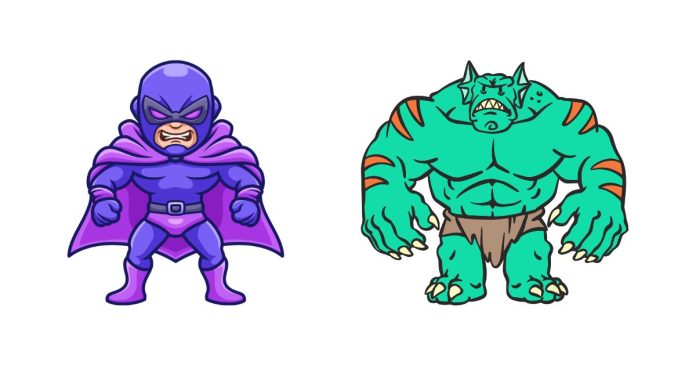In the world of storytelling, characters that blur the lines between good and evil often stand out as some of the most complex and intriguing. But what do you call someone who embodies both the qualities of a villain and a hero? These characters challenge traditional definitions of morality and create captivating narratives that keep audiences on the edge of their seats. Let’s dive into the concept of these morally ambiguous characters and the terms used to describe them.
The Antihero: The Ultimate Morally Complex Character
The term that most often describes someone who is both a villain and a hero is antihero. An antihero is typically a protagonist who lacks conventional heroic qualities such as idealism, courage, or morality. Instead, they often operate in shades of grey, making decisions that could be seen as villainous or self-serving while also performing actions that ultimately help others or challenge larger injustices.
For example, characters like Deadpool or Tony Soprano are classic antiheroes. They may engage in morally questionable actions—like breaking the law or acting out of personal gain—but they also display heroic qualities, such as protecting loved ones or fighting for a cause they believe in.
Villain Protagonists: When Villains Take the Lead
Another term used to describe characters who balance both villainous and heroic traits is villain protagonist. These characters, while often seen as antagonistic figures in the story, become the central focus and may even evoke sympathy from the audience.
For instance, Loki from the Marvel Cinematic Universe fits this mold. While initially presented as a villain in the Thor movies, his complexity and eventual growth as a character blur the lines between villain and hero. His actions may be driven by selfish motives or a thirst for power, but they are often framed in a way that invites the audience to understand his motivations and even cheer for him at times.
The Anti-villain: The Villain With Heroic Tendencies
On the flip side, a “anti-villain” is a character who exhibits mostly villainous traits but still has some underlying sense of goodness or compassion. An anti-villain might perform evil acts for a noble cause, or they may be motivated by a deeply flawed sense of justice.
A perfect example is Magneto from the X-Men series. While Magneto often stands in opposition to the X-Men, his actions stem from a desire to protect mutantkind from human oppression. His methods, however, are often extreme and violent, making him a villain who, at times, comes across as a tragic hero in his own right.
Embracing Moral Ambiguity
Characters who are both villains and heroes reflect the complexity of real human nature. They remind us that morality is rarely black and white, and that the line between good and evil can often be blurred. Whether you call them antiheroes, villain protagonists, or anti-villains, these multifaceted characters allow for richer, more engaging storytelling that challenges our perceptions of right and wrong.
So, the next time you encounter a character who seems to straddle the line between hero and villain, remember that they’re likely an antihero or an anti-villain—someone whose story explores the grey areas of morality.


